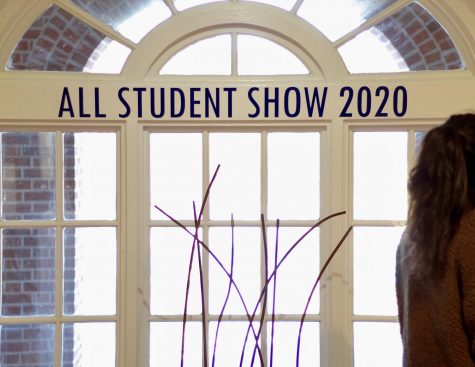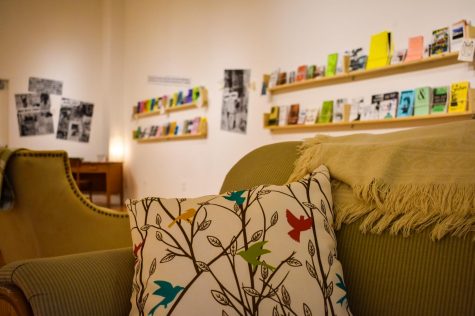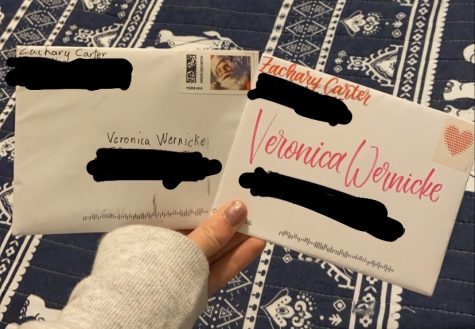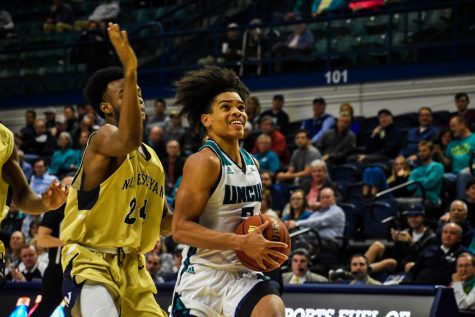Humans of the Dub: Chancellor Sartarelli, Part I
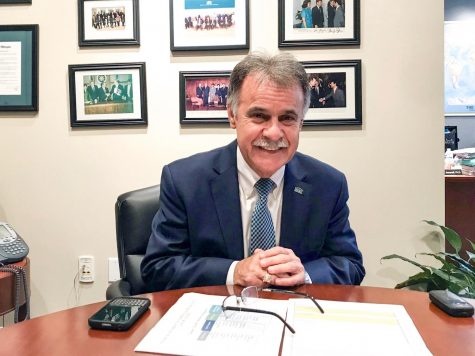
Chancellor Sartarelli at a table in his office, with both of his mobile devices (a Blackberry and a flip phone) as he talks about personal relationships, technology, and music.
How are interpersonal relationships significant to you and your work?
I’m very dependent on people; My happiness is tied to my relationships with the people around me and relating to them. Even though people probably think that I’m, you know — hard, driven, and not very sensitive — that’s all fluff. Deep inside, I’m very sensitive. I’m a person of loyalty. There is nothing in my life that is more important. There is nothing in life more despicable than not being loyal to somebody, to friends, to family, to colleagues. It’s the most important job. I’ve always said that the thing that differentiates us from animals is loyalty. Humans have the ability to be loyal.
I’ve tried at times to be more of a hermit and stick to myself; I just can’t. I have to get engaged with the people and things around me. I have to connect with people and form relationships. That’s what makes me happy.
There is nothing that makes you feel good about yourself more than receiving a compliment from another person. It doesn’t have to be a compliment, even just a positive comment. I should do more of that, complimenting people. At the same time, I don’t want to overdo it. I used to have a boss that told me everything I did was ‘so good’ and I started to distrust him. It can’t always be that way Not everything that I do is perfect. Not everything I do is even excellent. I shy away from overdoing it, but I’m very appreciative of so much of what I see. The way I look at a person, the way I say thanks to a person, it is reflective of my appreciation.
I remember back in school, a word of encouragement from a professor was so important, even more so than receiving a good grade. I think that this is why I can’t understand why people get so attached to devices today. The devices don’t provide you with anything. Even if its ‘Alexa’ that may respond, it is so fake.
When people get out of class, for example, instead of walking with someone and talking about the weather, they get on their devices. It’s just so limiting. The world is such a beautiful place.
Now, you can even use your devices on a plane. One of the things I love about flying is looking out the window at the clouds and geography. It’s so magnificent. The world is beautiful. It’s so easy to lose that appreciation.
Is that one of the reasons why you own a flip phone?
A flip phone? [He laughs.] Probably. The reason I have a flip phone is because I like to close it when a conversation is over. But, I also have a Blackberry. I like to see what I’m typing on. The keyboards on iPhones are messy. You touch it and it disappears. On my Blackberry, the keyboard isn’t going anywhere. It’s the same on the flip phone, I can see the numbers clearly. But that’s probably just because I’m old, right?
One of the biggest downsides I’ve seen with social media is that we have sucked in people and taken away from their humanity. It’s taken away the ability to just be people and to relate to one another. Technology has taken away part of our observations that humans learn from, as well as our appreciation.
Appreciation is so important. Let me play you my favorite song.
Editor’s note: Chancellor Sartarelli played Louis Armstrong’s 1970 performance of “What a Wonderful World” from his album “Louis Armstrong and His Friends” on his Blackberry. This version included a new arrangement by musician and composer Oliver Nelson and included a spoken-word introduction. The song and performance can be found here.
The instrumental begins to play as Louis Armstrong speaks:
Some of you young folks been saying to me, “Hey Pops, what you mean ‘What a wonderful world’? How about all them wars all over the place? You call them wonderful? And how about hunger and pollution? That ain’t so wonderful either.”
Well how about listening to old Pops for a minute. Seems to me, it ain’t the world that’s so bad, but what we’re doin’ to it. And all I’m saying is, see what a wonderful world it would be, if only we’d give it a chance.
Love baby, love. That’s the secret, yeah. If lots more of us loved each other, we’d solve lots more problems. And then this world would be a gasser. That’s what ol’ Pops keeps saying.
Chancellor Sartarelli chimes in, “The music is great, right?” as the music continues.
I see trees of green, red roses too
I see them bloom for me and you
And I think to myself what a wonderful world…
Chancellor Sartarelli stops the music.
Yes, definitely.
This is the type of stuff I’m talking about. How do we do that? You will spend the rest of your life making references to when you were 15 to 25. It’s the age of discovery. You’re becoming a woman, or a man, or whatever, right? It’s the age of high sensitivity. We spend a lot of these years focusing on our devices. It’s crazy. Yeah, anyway.
So, I have another question. I know you talked a lot about your interpersonal connections and how much you value them. I was wondering if you could tell me what relationships are most important to you, that you have in your life right now?
Right now?
Yeah.
Well, obviously, the relationship I have with my wife [Kathy Ann Sartarelli, the two met as graduate students at Michigan State University]. That is very important to me in many respects: support, sustenance … I had a quadruple bypass in January and wasn’t even able to take a shower. She helped me take a shower. She helped me with something that basic that I wasn’t able to do myself. That is important to me.
I’ve always had a lot of women around me. Some men too, but a lot of women: my mother, my two sisters. My younger sister is such an important part of my support system; we are the two youngest in the family. She has always been a very important person in my life.
I have a friend from primary school and we are still very close. He is one of those friends where even if we haven’t seen each other in five or ten years, as soon as you see the person, it’s like nothing has changed. We finish each other’s sentences.
I have a few people like that in my life. Some of those people are all over the world. I have a friend like that in Switzerland. I’ve got a close friend who lives in Shanghai, China. Lots of them live in Brazil. I have some here.
These are people who make life meaningful. They make life worth living. There is nothing better than going on a trip where the destination is to see somebody you care about. I’ve done that a lot, extemporaneously. That’s one of the downsides of America, you cannot just go and knock on someone’s door. In Brazil, or Italy, you can. You are able to visit your friends extemporaneously and spontaneously.
How do we do that? How do we create a relationship that’s focused on relating to people spontaneously [here in America]? It’s not possible today. Everything is planned.
Those are some people that are and have been very important to me.
One of my closest friends was my boss at J&J. She is a very successful woman. She is one of those friends that we have major disagreements on politics and other topics, but we have a deep caring for each other, and that is what’s important.
Editor’s note: Chancellor Sartarelli is referring to his time at Johnson and Johnson, where he served as a chairman for Asia-Pacific, Japan and Latin American from 2001 until 2010 when he became the Dean of the College of Business and Economics at West Virginia University.
True friends are the people that will disrupt their lives to help you. That’s hard to find.
Definitely.
People may say ‘Yeah, well, whatever. I’ll do it when I have the time.’ People, who say ‘You know what? I’m going to set aside things that are important to me because I want to help this person. I want to be with her.’ And vice versa.
A friend of mine came to my inauguration because he wanted to be there for me.
That’s sweet.
It was very sweet. I didn’t expect him to come, but he came. That meant a lot to me.


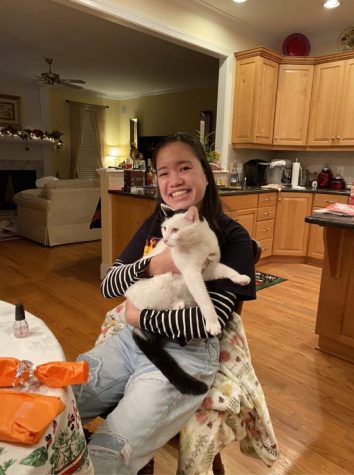
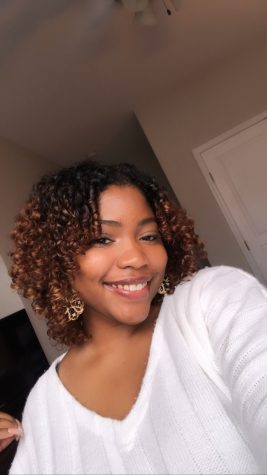
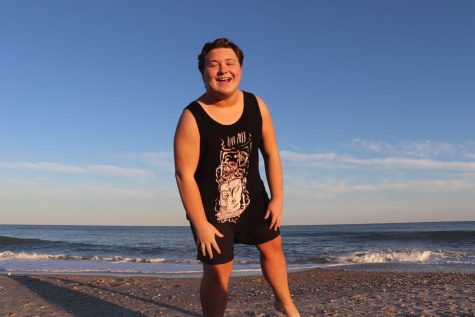
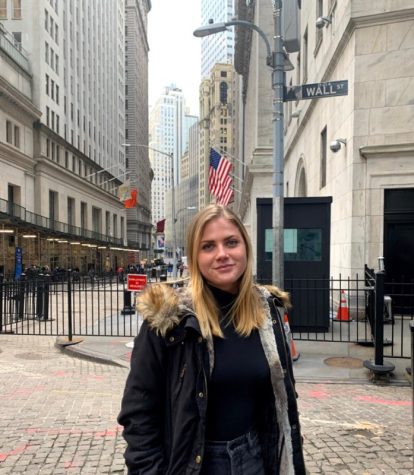
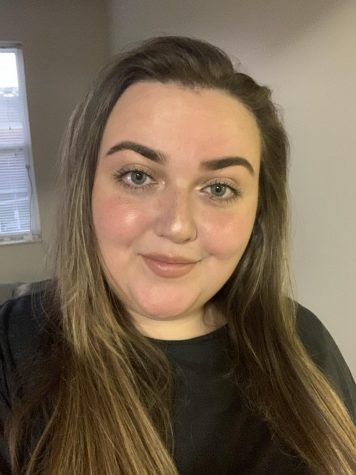
![A map of emergency callboxes on campus. (UNCW) [hyperlink: https://uncw.maps.arcgis.com/apps/webappviewer/index.html?id=579a0e90030c4864a41c70fbe06338d9 ]](https://theseahawk.org/wp-content/uploads/2023/12/IMG_6388-600x277.png)
